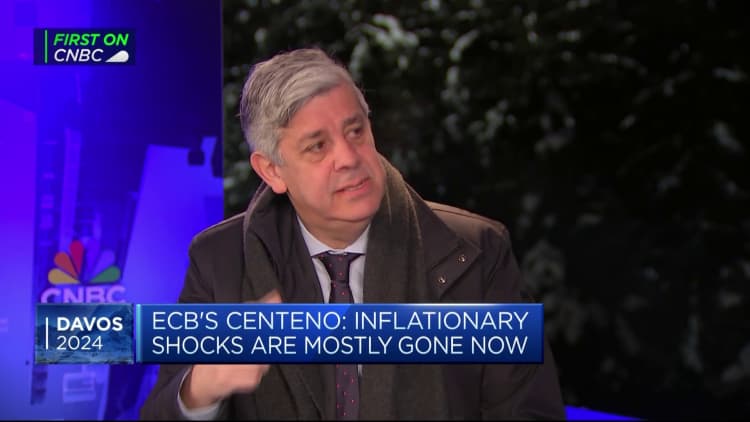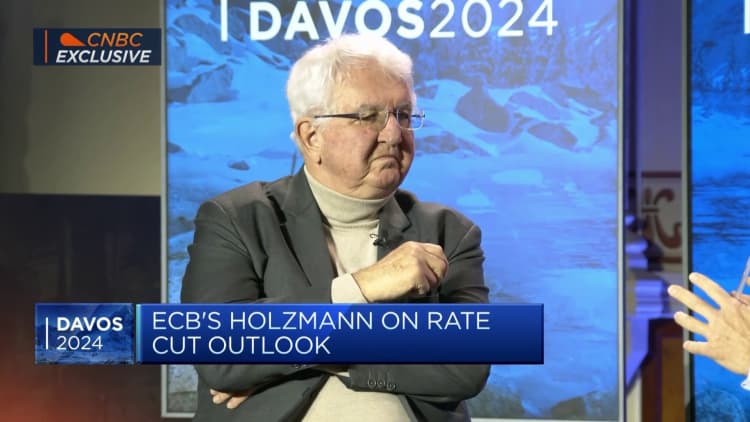Christine Lagarde, president of the European Central Bank (ECB).
Bloomberg | Bloomberg | Getty Images
European Central Bank President Christine Lagarde received a harsh assessment in a union-run employee survey, with some staff accusing her of fostering a negative atmosphere and focusing on her own career.
Many respondents said Lagarde spends “too much time on topics unrelated to monetary policy” and forays too often into political discussion, the ECB union IPSO said alongside the results released Monday.
Just over half of the nearly 1,100 respondents rated Lagarde’s performance so far as “very poor” or “poor.” The ECB has more than 3,500 employees.
The survey was conducted between Dec. 12 and Dec. 22, 2023, around the mid-point of Lagarde’s eight-year term.
The former International Monetary Fund chief and French finance minister took on the job spearheading euro zone monetary policy in November 2019. She has overseen a record run of interest rate hikes as the central bank battles inflation which spiked to a high of 10.6% in October 2022.
Lagarde was rated slightly more favorably on questions specifically related to policy — with 38.4% saying they “strongly agree” or “agree” with decisions taken under her leadership, and 27.6% agreeing that she has made good use of ECB staff expertise.

But staff were divided on whether she had communicated monetary policy effectively; and 53.5% disagreed that she was the “right president for the ECB at the current juncture.” CNBC has contacted the ECB for a response.
In comments provided to Reuters, an ECB spokesperson called the survey flawed. They said it included topics which the body’s Governing Council and Executive Board are responsible for, not solely the president, which they said were “not within IPSO’s remit.”
‘Negative atmosphere’
Dissatisfaction was reported with various internal ECB matters, including workload, wages, career progression and diversity policies.
IPSO said that while this may partially explain assessments of Lagarde’s presidency, her predecessors Jean-Claude Trichet and Mario Draghi had received positive assessments of their external performance despite internal complaints, while she did not.
Qualitative comments “generally” described Lagarde as being “an autocratic leader” who does not necessarily act according to the values she proclaims, IPSO said. Respondents reportedly said her leadership style had instilled a “negative atmosphere” in the central bank.

IPSO said there was also a perception among staff that Lagarde was using the role to further her personal image and potentially prepare her next career move.
The European Central Bank’s latest monetary policy decision is due Thursday with Lagarde due to speak at a press conference shortly afterward.

